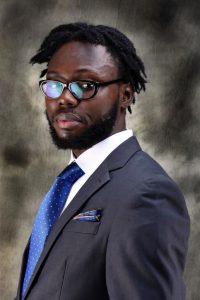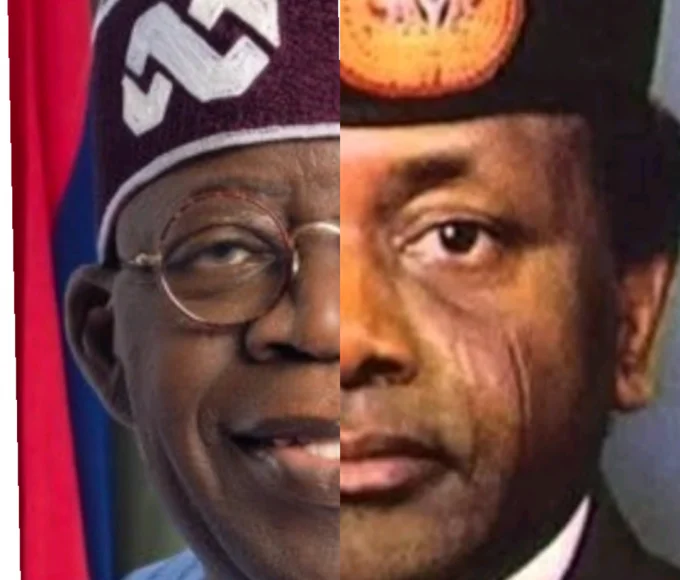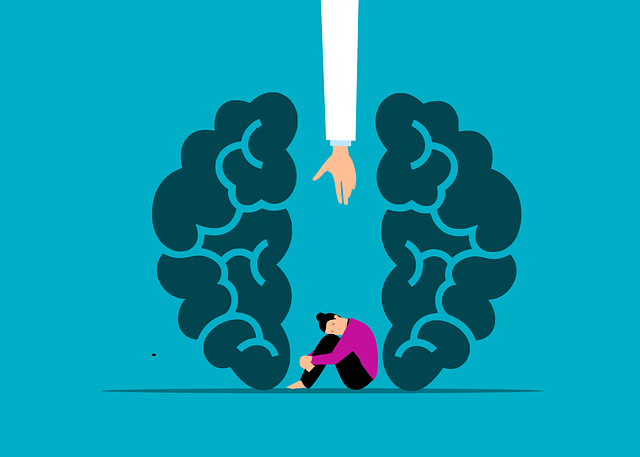
Open Letter: Dear Omah Lay, You May Be a Deist by Raphael Adebayo

Dear Mr. Stanley
I hope this meets you well.
I should let you know that I am a particular fan of your soul-stirring music Soso, which I think is brilliant, specifically for all that is unsaid and implicit in it. However, this open letter is not about your music, or what some people have liberally described “Afro-pessimism” tune; it is about what we may call your religious worldview. As I seldom do when my overbearing schedule permits, I was doomscrolling the X platform when I saw a snippet of your interview with Wunmi Bello, highlighting your thoughts on religion. Naturally, I became curious because Nigerian celebrities hardly speak of their disapproval or skepticism of organized religion.
First, permit me to commend the honesty with which you shared your views; I have seen this quality again and again in your interviews, especially the one with Joey Akan. In this case, your acknowledgement that you do not have enough information to pillory organized religion is a laudable sign of self-awareness. Second, your position that you believe in God and would rather privately maintain that relationship than allow organized religion and those who intermediate between Man and God to dictate your religious affairs, lends credence to the strength of your conviction, regardless of the personal costs you may incur as a result.
As a matter of principle, I believe religion and religious views should be a private affair, so whether it is you or anyone else, the right to religious privacy should be inviolable. In our part of the world, this view is irreducibly precious given the intolerance, and the all too common hostility, of the fanatics among our people toward any view on religion that departs from the traditional colonial understanding of organized religion as foisted on us by our European colonizers. At the same time, I believe that individually, we all are tasked with a degree of social responsibility to our society, to expand the current frontiers of liberty, self-actualization, and equal opportunity.
It is on this basis that, I hope, you will permit my presumption that, taking into consideration your recently expressed view on religion, you may be a Deist. I do not take this lightly, considering I also share your experience in terms of my immediate religious environment growing up, and you will find that most Deists have the same formative experience—but to the extent that this view is reasonably permissible given the peculiar truncation and denial of our own formative experience being derived from what is authentically ours religion-wise. In any case, I had the curious privilege of being divided between Christianity and Islam, the former being the religion of my biological parents and the latter that of my grandparents on both sides. So, often were the days when I would go to church in the morning with my biological parents and later join my grandparents in the evening for supplication or instructions at the mosque. At a point, I seriously considered becoming a cleric, even partially practiced as one, because I was, as you might say, perfectly indoctrinated in the ways of those religions, especially Christianity.
If you are reading this, then it is only natural that you would ask: What is a Deist? You should know you share this question in common with other curious individuals who are currently uncertain about what to call themselves as people with unconventional or relatively non-Abrahamic religious views. I have realized that more people believe in God but reject organized religions, for reasons not in any way unusual: religious skepticism, the metaphysical hubris of organized religions, scriptural inconsistencies, clerical and doctrinal deceit, crass materialism, barefaced exploitation, moral and political corruption, the scourge of “anointed prophets,” intolerance, abuse, violence, inhumanity, eschatology, the crack of doom, etc., etc.
The more popular critics of organized religions that may be viewed as independent movements in their own right, ever-gaining momentum in Nigeria and by extension Africa, are the Atheists, who totally repudiate the existence of God or any Supreme Being; the Animists, who attribute Supreme Power in the cosmos to non-living things and nature; and to an extent, the agnostics, who believe that divine mysteries such as the existence of God or gods is entirely unknowable. Each of these positions is valid and deserves the collective respect of our society, just as they do in societies where people have become more tolerant of divergent religious views.
But to go straight to the point, Deism is the belief in God and the rejection of organized religion. Of course, the argumentation of Deists on the meaning and purpose of God, or on the extent to which organized religion can be accepted if at all, differs remarkably. However, to the best of my belief, all Deists agree on the illusional nature of divine revelation, which is all too central to the Abrahamic religions. Historically, Deism has mostly been the preoccupation of intellectuals and the so-called blue-blooded folks, reaching its zenith in the seventeenth and eighteenth centuries when it ignited the flame of religious rationalism in the masses, specifically in Europe and, later, North America. In fact, one of the earliest works on Deism, Shaftesbury’s Characteristics, which has been described as the Deist Manifesto, was written by the third Earl of Shaftesbury, Anthony Ashley Cooper during the same period. He is considered one of the pioneers of Humanistic Deism, which is consistent with your own moral position and statement that you have decided to “just believe in God, respect God, and become more human” as opposed to being a religious fanatic.
Deism is not anti-Christian or anti-religion in the sense that Deists are intolerant of their position, but Deism demands that those who come to religious enlightenment, if at all, should do so through rationalism, or objective reason, which they are inherently capable of, rather than the dogmatic myths and doctrinal rhapsodies of organized religions. Of course, this intellectual tradition, in itself, should properly be viewed in light of the early development of classical liberalism in the West and the upsurge in the advocation for individualism, natural rights, and tolerance. As one of the most respected French philosophers and vocal Deists of his time, Voltaire’s “attitude” to tolerance has been succinctly and famously rendered as “I detest what you say but will defend to the death your right to say it.” When we eventually achieve this level of tolerance in our society’s discussion of these issues, we will quicker find the light than be reconciled to the oppressive forces currently embedded in our existence.
Meanwhile, there was also Thomas Paine, a prominent eighteenth-century figure in Deism and a revolutionary at heart and in practice, who argued lucidly on this issue in The Age of Reason, his most instructive work on Deism in which he exposed the “myths” or discontents of the fundamental principles, or dogma, of Christianity. As you are aware, the principles undergirding Christianity can be summarized in three parts: the Creation of the Universe and Man, the Descent of Man into Sin through the guile of the Serpent and Eve, and the appearance of Christ, who became the symbol of Salvation and forewarning of the certain Damnation awaiting the souls of those who do not convert to the ways and teachings of Christ. Of course, all of this is based on “revelation,” a largely unverifiable one-man personal encounter or experience, broken down into the subjective representations of the diverse chapters and passages in the Bible, which directly touches on your statement that you “cannot find evidence” of any link between the existence of God and these scriptural instructions dictating the moral affairs and conduct of humans on Earth.
In many ways, despite the extraordinary advancements of science, even the development of reason, we know less of the totality of our universe than we can boast to know of in our tragically brief lifetime. From outer space, nearly four billion miles away, our collective existence is merely a very tiny dot, completely unindicative of the material and philosophical complexities of life in our world. In this sense, all totalizing claims to supernatural truths from ordinary mortals like us are simply fictitious or mawkish. For Paine, these so-called divine revelations were mythical, and rightly so. Also, Paine was of the view that these fundamental principles are shepherded through the means of “Mystery, Miracle, and Prophecy,” in which case he asserted that “The first two are incompatible with true religion, and the third ought always to be suspected.” Hence, you may as well note that Deism rejects the idea of miracles, which is practically impossible. In any case, Paine would go on to expose the unreality of these “principal means,” including the enfeebling doctrine of the Trinity, in concrete historical and rational terms which can hardly be refuted—a task that has never been convincingly undertaken ever since the late eighteenth century when Paine’s book was first published. In this sense, Paine is sometimes described as one of the proponents of Scientific Deism.
Alternatively, you may consider Paine as belonging to one of the four distinct categorizations in Deism, which in my view is more three than four. This grouping of Deists into separate intellectual groups was the unenviable work of a distinguished British metaphysician of his time, Samuel Clarke (1675-1729), who stated that the first group of Deists believe in the existence of God as the Creator of the universe as a whole but reject any active intervention by Him in the affairs of the universe, including its moral laws and all that is alive and unalive in it. The second group of Deists equally acknowledge the power of a supreme being in the divine ordering of the world and concede a degree of active divine intervention to Him by way of His irrefutable Providence or providing protective care, although they reject that this God is morally conscious or morally driven in any way. Going by this view, any providential intervention is arbitrary and devoid of moral considerations; so, for example, when the wicked live and the virtuous die, or when the former is rich and the latter poor, it is by no means the decree of God but a matter of humanity’s ethical standards or depravity. Echoes of this particular view will be found in the work of the stout-hearted black liberation activist and nationalist, Marcus Garvey.
The third group of Deists, according to Clarke, consists of those who are convinced that God is indeed an ethical Being and that He is morally driven in His actions; but at the same time, they refute the deathlessness of the human soul and by extension the afterlife. The latter part of this Deistic view is spectacularly similar to the declaration of the celebrated theoretical physicist Stephen Hawking who, in one of his seminal works, declared that “belief in the afterlife is just wishful thinking… But there’s a sense in which we live on, in our influence, and in our genes that we pass on to our children.” However, I must add that the view of this third group is acutely inconsistent with, for the most part, the view of traditional African theosophy on the next world, going all the way back to Ancient Egypt, specifically the predynastic Badarian Period, predating even the earliest Western conception of immortality.
Then, the last of these four groups consists of those who firmly hold that God exists, that God indeed actively intervenes in the practical workings of the world, and that the views of the first three groups of Deists are also largely correct; however, they reject revealed religion or revelation according to the Christian theology and instead uphold natural religion, or a rationalist conception of religion and God, and whatever religious duties are due it. In my view, I do not think this last group deserves a distinct categorization because it appears to be a creation of convenience for Clark rather than a distinct intellectual subclass imbued with any serious distinction. Also, of the early Deistic proponents of that time, again to the best of my belief, I am not sure which we will group in this fourth class who is authentically Deist in the first place. I will skip the objections of Clarke to these positions, including his patently erroneous predictions that history has ruled out. I will also skip the modern Deistic traditions.
The main point here is that you are right to focus squarely on having an unmediated relationship with God, and you do not have to feel that money caused it. It is true, we can say money contributed to it, in the sense that when you made money you had more time for rational thinking, which for other people may be a unique personal encounter, a radical experience, or what they learned from books. I have listened to your BBC interview in which you said you do not like placing yourself in a box, which is understandable since you are a unique creative. But I hope this does not mean you equally abhor terms and terminologies. Surely, you will agree with me that the latter would rather be comical, especially for someone like you. In fact, that would be the same as saying, contrary to what we know of your talents as a musician, we should only refer to you as a mechanical engineer, even if you have acquired no such ability or qualification, or that you have been an astronomer all along. Rather than avoid this necessity, I always suggest that people find the term that most fits them and their convictions, or create one in the absence of something befitting. Why? The terms by which we describe our attributes and convictions are the specific expressions that define our relations with ourselves, natural phenomena, our society, and the world.
Unfortunately, the history of Deism, as with several nontraditional religious worldviews, has been largely written by religious partisans and, in some cases, fanatics. In this regard, the most famous works on Deists and their views have been written by religious folks, and they are unsurprisingly burdened with unrelieved bias. In the same way, Deism is one of the least taught subjects in most academic environments, naturally raising suspicions of subtle discrimination, though Deists do not exactly give two hoots since the goal ab initio was never to proselytize for converts. Also, some of the early thought leaders of Deism held their views firmly in a century where tolerance was still largely relative, causing them to incur great personal costs, many times economic and occasioned by the leading Christian partisans of the time.
For some years now, I have decided not to speak or write about Deism, given the steep intolerance and intellectually hostile reaction that the mention of Deism has earned me among the religious partisans I know in Nigeria and other parts of Africa. Rather than curiosity and tolerance, I find that they would rather tar all peaceful non-Abrahamic and non-religious views with the same brush of atheism, which I consider a disappointing vacuous attitude to the diversity of thoughts and intellectual endeavors. Nevertheless, I should let you know that I have met a few broad-minded people, among them a brilliant lady in East Africa with staunch libertarian views who welcomed the idea of Deism and subsequently applied herself to learning more about it.
I have decided to write you this open letter not out of idleness or to be nitpicky but because I think it might have some impact on our society today and in the future. I also believe the impetus of history is beckoning Africa to assume her definite ideological form in all aspects of life, and this would necessarily require the courage of men like you in positions of influence, to speak more and hopefully contribute to freeing our people from their woolly-minded religious entrapment, which has a direct link to our individual and collective response to our shared political reality.
If you have read this letter up to this point, kindly accept my appreciation. Please do not be burdened with the weight of responding to me, but feel free to write back if you feel like it. Also, do not consider this an attempt to railroad you into explicitly adopting Deism as a religious worldview; I have simply addressed this to you to let you know the religious worldview exists, and that those who are guided by it, like me, also exist. I believe that, as Paine concluded in his work, “when opinions are free, either in matters of government or religion, truth will finally and powerfully prevail.”
In the meantime, I look forward to your next musical piece.
Respectfully
Raphael Adebayo
Raphael Adebayo is an author and human rights activist. His book, De-Nigerianization, is described as “a propulsive vignette of Nigeria’s historical lopsidedness” and an exhortation to confront the meaning of Nigeria. His work has appeared in SaharaReporters, The Punch, Business Day, and West Africa Weekly.
About The Author
Related Articles
Rivers: Tinubu’s Hidden Obsession
You cannot tell who a man is until he is in power...
ByJohnson AkorApril 14, 2025Mental Health Matters: Building a Foundation for Wellness and Growth
Writing has made me reflect on the power of sharing knowledge—sparking conversations...
ByOluwaseun DawoduDecember 13, 2024Paris 2024: Tobi Amusan And The Olympic Dream
The long-awaited Olympic year is finally here. The event, scheduled in Paris...
ByJunaid OlaitanJuly 24, 2024Beyond Brain Drain: Nigeria’s Healthcare Workforce Crisis
On November 29, 2023, no fewer than five wards, comprising about 150...
ByGrace Akan-FrancisMarch 11, 2024











